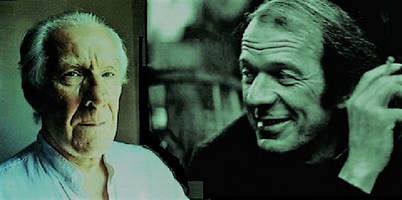|
“What is the relationship between metaphysics and political revolution? Despite being two of the most widely discredited concepts in contemporary European philosophy, this chapter argues that we are witnessing the return of both in the work of French philosophers Gilles Deleuze and Alain Badiou.”
“Contemporary philosophy is thus pulled in two post-metaphysical directions: a positive post-Kantian direction and a more negative critical direction. In the first direction, philosophy’s access to the real is relativist or “correlationist,” as Quentin Meillassoux argues. In this direction, philosophy’s access to the real is mediated through and limited by its cultural-historical context, its language, or its body-consciousness. The world only appears “for us” and never ” in itself.” In the second direction, philosophy is the watchdog of the real, vigilant, and critical against every metaphysical pretender that dares to usurp the kingless throne of the true and the real. These two post-metaphysical traditions can be mapped on to the two dominant traditions in continental philosophy: phenomenology and deconstruction.”
loading...
“In the political domain the concept of revolution confronts a similar fate. Not only is there no single sovereign with direct access to political truth, it is argued, but there is no representable will of the people that can access this truth either. After the failure of the communist experiment, it is no longer philosophically tenable to believe in the power of people to determine the truth of political life. […] Metaphysics and revolution thus share a similar disrepute: it is no longer possible to believe in the real without the mediating forces of language, culture, party, and state. “
“Against this disrepute, this chapter argues that we are witnessing the return of metaphysics and revolution without mediation and political representation. But if this return is not a mere repetition of classical metaphysics and revolutionary statism, what is it? The return of metaphysics and revolution is a bold claim and requires some unpacking. To help me unpack this claim I will draw on the work of two contemporary philosophers who, throughout the later twentieth century, have rejected the so-called ‘end of metaphysics,’ the ‘death of philosophy,’ and the ‘exhaustion of revolution’: Gilles Deleuze and Alain Badiou. Ultimately, my argument is that whatever differences may exist between these two thinkers, we can find a very specific and common formulation of the return to metaphysics that I believe also offers us a promising new direction toward a non-representational theory of political revolution. More specifically, I argue that despite (or precisely because of) their important disagreements over ontology and the relationship between philosophy and politics, Deleuze and Badiou both share a commitment to what I call a “metaphysics of the event.” By a metaphysics of the event, what I mean is that their realism is based on two philosophical commitments: (I) the necessary condition of ontological contingency (or multiplicity), and (2) the sufficient condition of the existence of events and their consequences. While for Badiou events may be relatively rare, and for Deleuze they are more numerous, what is important here is that for both thinkers events are what make possible the return of metaphysics and revolution.”
via
0 Comments
Leave a Reply. |
Steven Craig Hickman - The Intelligence of Capital: The Collapse of Politics in Contemporary Society
Steven Craig Hickman - Hyperstition: Technorevisionism – Influencing, Modifying and Updating Reality
Archives
April 2020
|

 RSS Feed
RSS Feed
